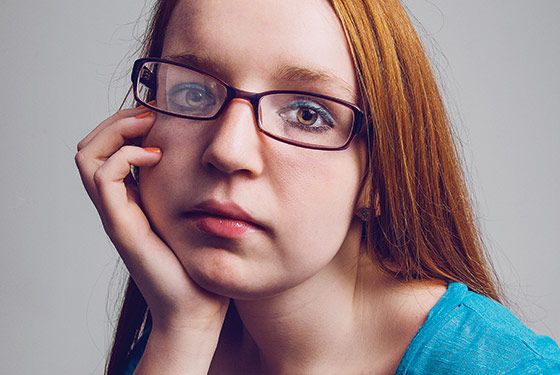One in three women has an abortion by the age of 45. How many ever talk about it? New laws, old stigmas. 26 stories.
 |
Nicole, 19, Kentucky
(Photo: Christopher Anderson/Magnum Photos/New York Magazine)
|
Lawsuits have been waged and courts have adjudicated, and still we seem no closer to consensus on when, where, how, and if a woman should be able to terminate a pregnancy. Even in Roe v. Wade, the Supreme Court was qualified in its judgment: An abortion was a personal decision only in the first trimester; in the second, states could intervene on behalf of the woman’s health; once the fetus was considered “viable,” a state could set whatever limitations it saw fit.
Successive court rulings have granted even more latitude in writing abortion laws, and legislators have responded by creating a patchwork of regulations: Arkansas has banned abortion after twelve weeks, while in Louisiana, a woman is shown her ultrasound before having an abortion. In California, a trained nurse practitioner can now perform an abortion, but in Mississippi, a provider must be an obstetrician with admitting privileges at a local hospital, a rule that could shut down the state’s last remaining clinic. This month, a federal appeals court upheld a similar law in Texas, closing all but a handful of clinics.
But for all the regulations and protests, despite “safe, legal, and rare” and “abortion is murder,” abortion is part of our everyday experience. Nearly half of all pregnancies are unintended; about half of those—1.2 million—will end in abortion each year.
And yet abortion is something we tend to be more comfortable discussing as an abstraction; the feelings it provokes are too complicated to face in all their particularities. Which is perhaps why, even in doggedly liberal parts of the country, very few people talk openly about the experience, leaving the reality of abortion, and the emotions that accompany it, a silent witness in our political discourse. Even now, four decades after Roe, some of the women we spoke with would talk only if we didn’t print their real names.
As their stories show, the experience of abortion in the United States in 2013 is vastly uneven. It varies not just by state but also by culture, race, income, age, family; by whether a boyfriend offered a ride to the clinic or begged her not to go; by the compassion or callousness of the medical staff; by whether she took the pill alone at home or navigated protesters outside a clinic. Some feel so shamed that they will never tell their friends or family; others feel stronger for having gotten through the experience. The same woman can wake up one morning with regret, the next with relief—most have feelings too knotty for a picket sign. “There’s no room,” one woman told us, “to talk about being unsure.”
Nicole, 19
Kentucky, 2013
It was this past spring. The due date’s coming up—I’m dreading it. I wanted to keep it. My boyfriend always had football practice, so he couldn’t go to the doctor appointments with me. If he’d gone, he would’ve felt differently. But he said, “No way.” I wanted to show him that I loved him enough to do it for him. When I was thirteen weeks, we made an appointment at the closest clinic in Kentucky, four hours away, but the night before, we decided not to go. At two in the morning, he called and said, “Get dressed.” I said, “I don’t want to go.” We both cried the whole way there. I don’t think abortion is killing, but I’d always been against it. When I told him the credit-card scanner at the clinic wasn’t working, he asked if I was making it up. We went to get $1,000 from a gas-station ATM. I was hysterical, and he said, “Okay, you don’t have to go back.” I was so happy. Then he said, “We drove all this way. Stop crying, act like a woman.” I was angry, but I was so sleepy and tired of fighting. When I had the ultrasound, I asked for the picture and a nurse said, “Seriously?” A month later, he said he regretted it too. When I cry about it, I cry alone. He thinks it would make me sad to talk about, but I don’t want our baby to think we forgot. I’ve never heard of anybody else having an abortion here.


0 My Comment:
Post a Comment